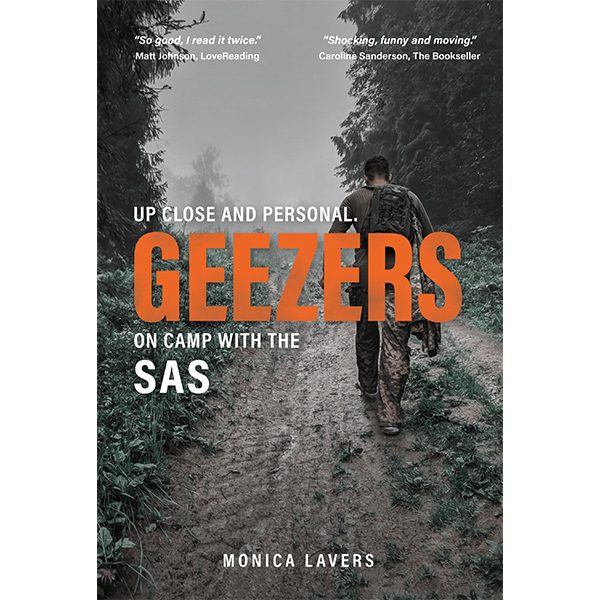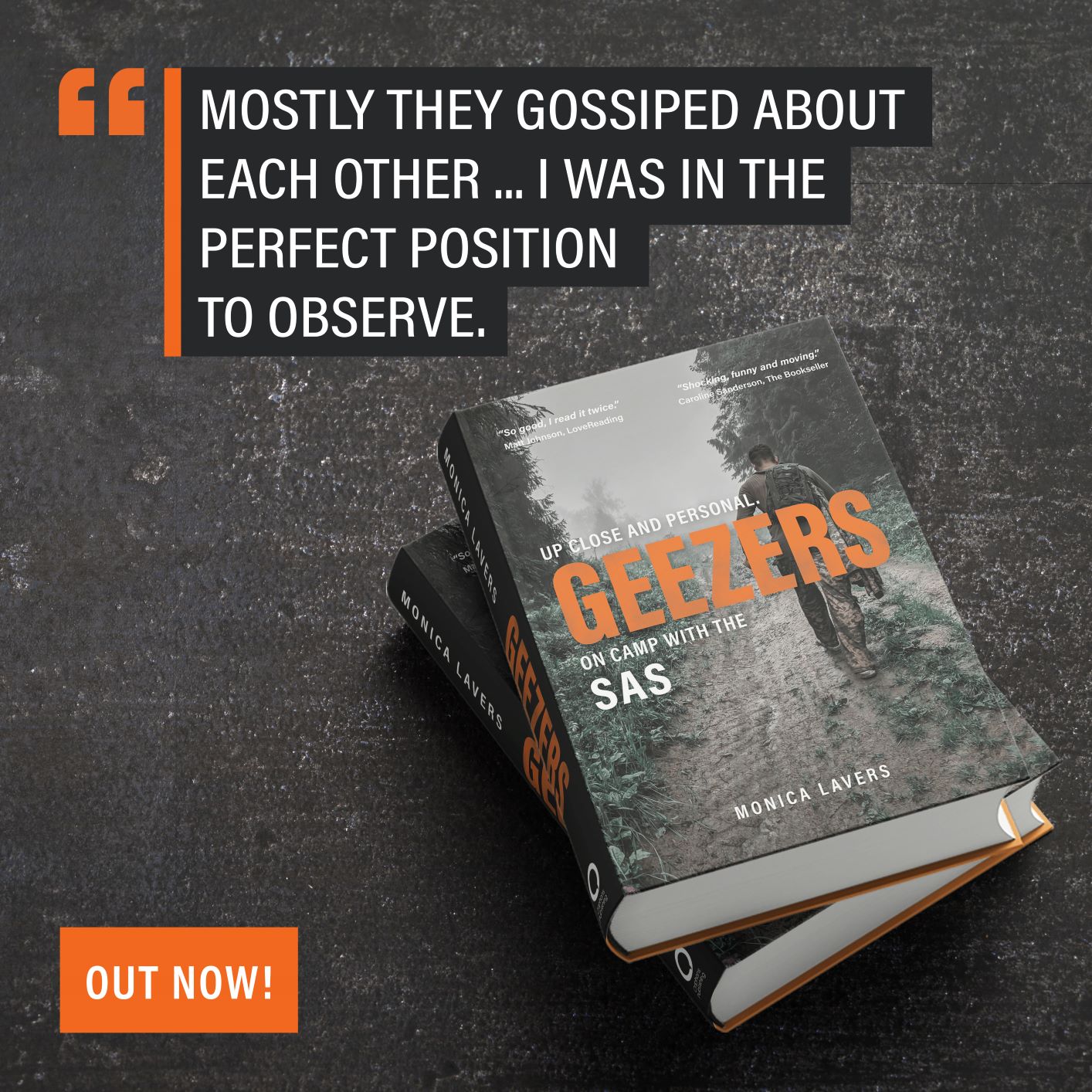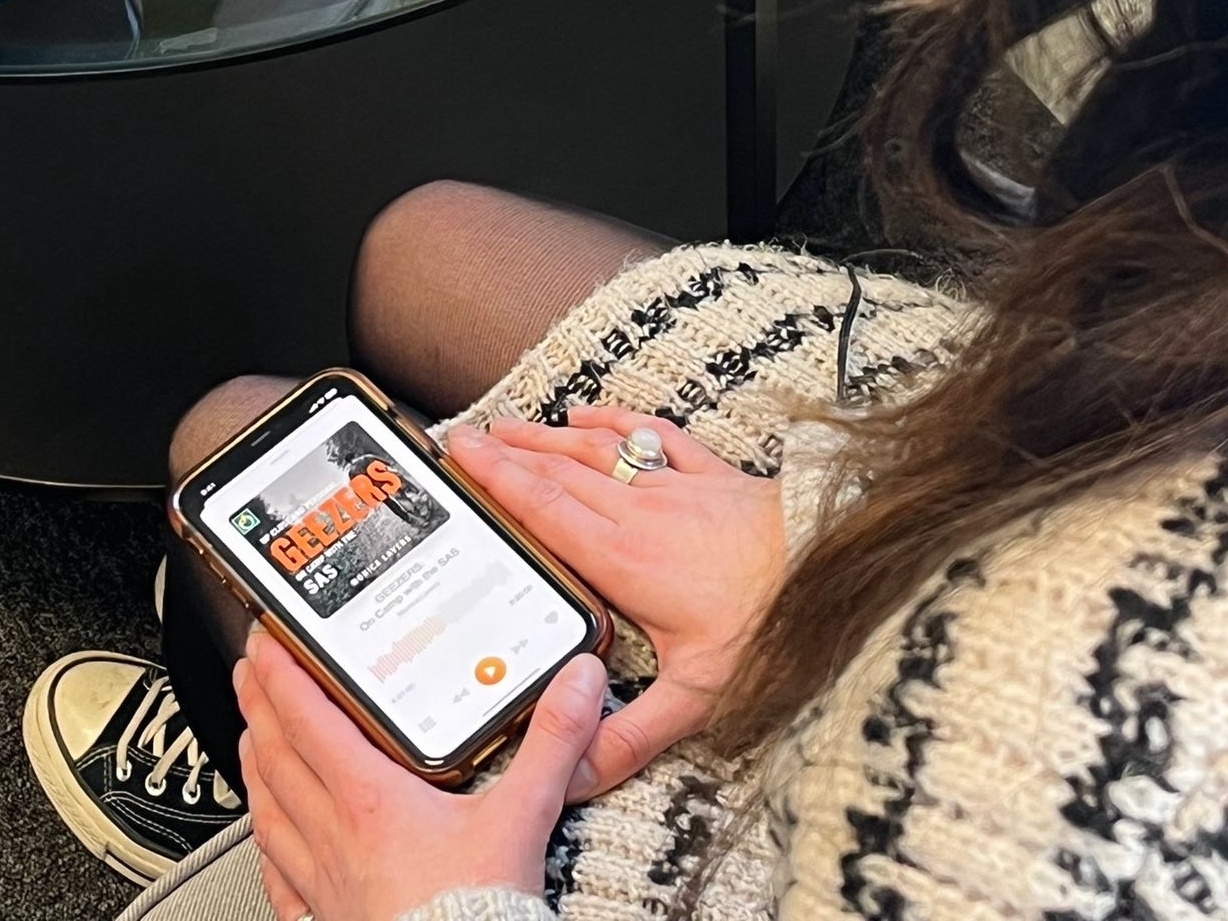
In the Booth: Monica Lavers on transitioning from the written word to audiobooks
To celebrate the audiobook release of Geezers: On Camp with the SAS on March 1st, Monica Lavers discusses her experience in the recording booth.
It’s like one of those moments two old soldiers look at one another and silently register their bond.
“Yeah mate, we’ve both been there – War. It’s hell. But we came through. Respect”.
I like to think Prince Harry and I have a similar bond. He read his book – all 416 pages – so I know what he’s gone through. I recorded my own memoir, Geezers, over nearly three days and it’s a hard job even for professional readers, never mind authors who haven’t read aloud much in their lives beyond bedtime stories for their children.
Recording an audiobook is like reading to your kids all night, sitting up straight. If you want to cross your legs, they have to stay crossed. You hold the book in one position. Every now and again you’re interrupted by someone telling you to repeat a line because they heard a stomach rumble. At one point we spent fifteen minutes tracing a weird sound and it was the belt on my jeans, moving slightly when I breathed. Off it came. Squeaky belts can hold up an entire production, he said.
You think I’m joking? It’s a raw, unembarrassed process with absolutely no time for histrionics or cutting corners.
Prince Harry and I had the option of a professional reader, but nobody could picture the places we were writing about because they were truly ‘behind closed doors’ and our job was to deliver a clear account of what many people thought unbelievable.
There’s no glamour in this process. No flashy reception areas, no comfy waiting lounges with assistants bringing coffee. With audiobooks now the fastest growing format in publishing, the turnover in production has to be precise and slick – a very hungry beast.
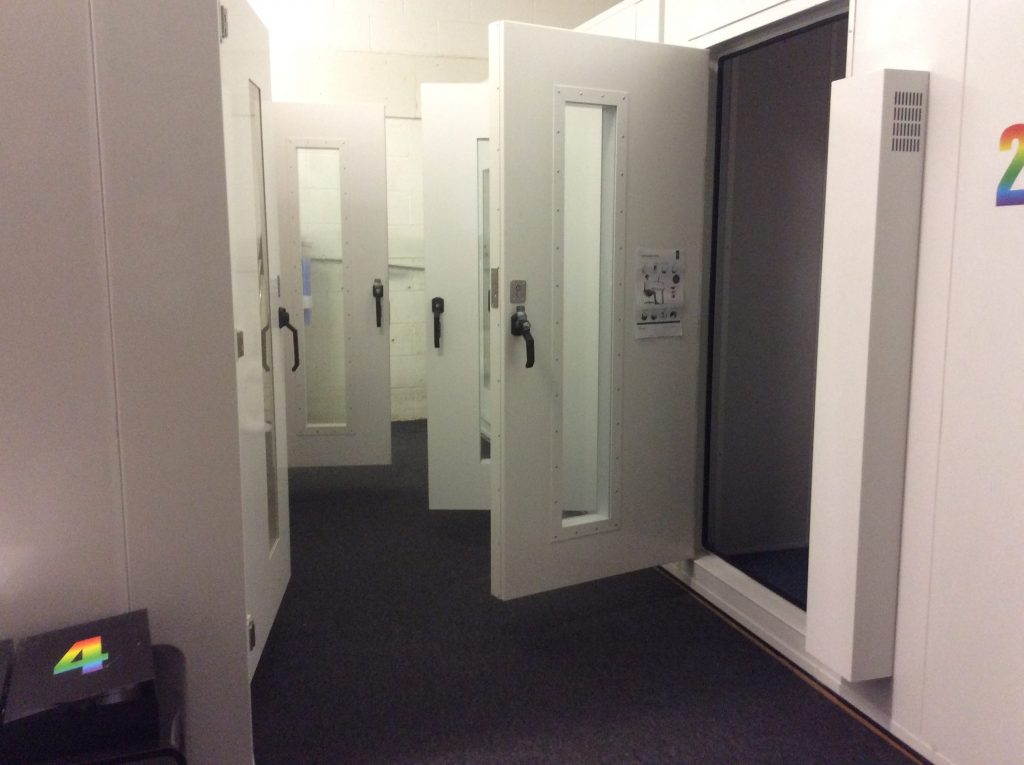
For a start, you’re straight in and shown to your soundproof booth. ‘J’, my engineer, arrived, smiling widely. If you’ve ever been in a confessional, it was similar, not much bigger than a toilet cubicle. I was then locked in, J on one side in his own booth with a small glass window between us. We spoke to one another through microphones. I had just a large microphone and a swivel chair. He faced an array of technology which wouldn’t have looked out of place in a complex cardiac operating theatre – only this time it was the sound waves of my voice he would be monitoring, not my heart.
“Whenever you’re ready,” he said, concentrating.
“Chapter one,” I said.
It wasn’t difficult. I’d practised at home for weeks and briefed J on the intimate, ‘telling secrets’ style I would be aiming at, as if telling a friend.
“We average 30 pages an hour”. I got the message.
I met two professional readers in the Green Room. A thirty-eight year old actor called Ellie taking a break from being a neurotic American woman, and a handsome American actor who said he’d only read for an hour and was exhausted.
“It’s a Victorian romance,” he said, “a bodice-ripper”. I told them mine was the SAS.
“Bloody hell, good luck,” was all we said to one another.
There were cheery production staff somewhere ‘upstairs’ who were all young, with headphones clamped to their ears even as they descended to flick on the kettle and open some biscuits. Nobody looked fed up or tired. I was mesmerised.
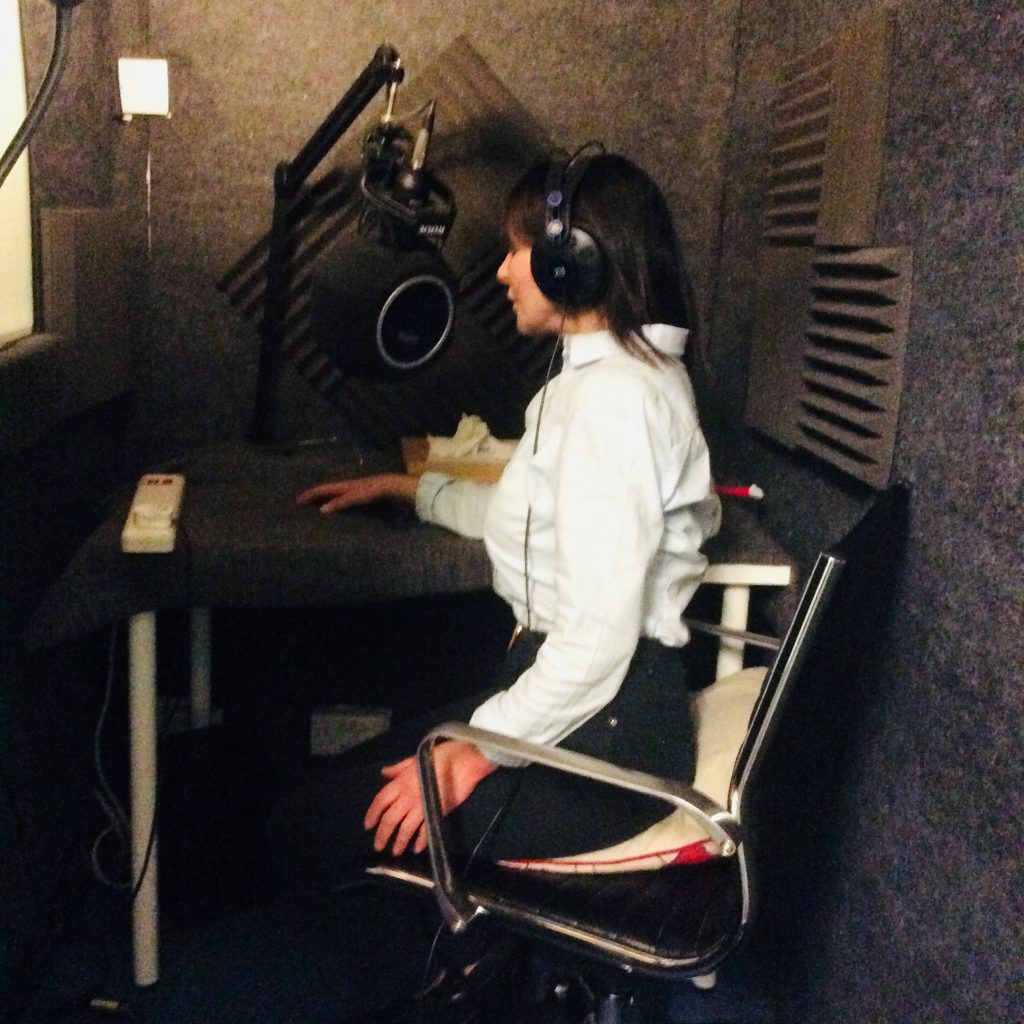
Even if you’re Prince Harry, recording an audiobook is a level playing field. Locked into your booth, you read all day, and the next day, and possibly even a third, which they call a ‘safety day’. It’s windowless, your eyes are moving back and forth for hours and the body is in a sort of stress position. Your throat is rough. I was conscious of my senses working hard, eyes taking in information, hitting my brain which then relayed it through my vocal chords to a memory system for all time.
The day after I got home, my arms felt like I’d done press-ups for hours but I’d simply held my iPad at shoulder height without support. My hips and knees were stiff. But I said goodbye and went home missing the place terribly, longing not just for that intimate connection with the studio but the connection with the book I wrote and the places it portrayed. I’m so grateful to Isis Audio for the opportunity to add this dimension to my book, especially for people who cannot enjoy a book any other way.
I hope you enjoy it too.
Monica Lavers is the pen name of Monica Grenfell, a writer and health journalist who worked as a national newspaper columnist for more than 18 years and the author of 8 bestselling books, including Geezers: On Camp with the SAS – available in hardback now, and audiobook on 1st March – pre-order now!
Featured Publications
